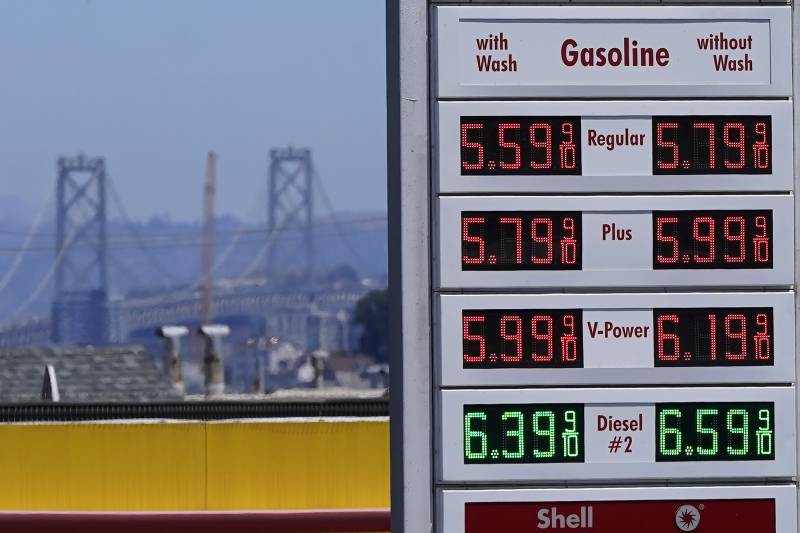He is expected to sign the bill into law Tuesday.
Legislative leaders rejected his initial call for a new tax because they feared it could discourage supply and lead to higher gas prices.
Instead, Newsom and lawmakers agreed to let the California Energy Commission decide whether to penalize oil companies for price gouging. But the crux of the bill isn’t the potential penalty. Instead, it’s the reams of new information oil companies would be required to disclose to state regulators about their pricing.
The companies will now have to report this information, most of it to be kept confidential, to a new state agency empowered to monitor and investigate the petroleum market and subpoena oil company executives. The commission will then rely on the work of this agency, plus a panel of experts, to decide whether to impose a penalty on oil company profits and how much that penalty should be.
“If we force folks to turn over this information, I actually don’t believe we’ll ever need a penalty, because the fact that they have to tell us what’s going on will stop them from gouging our consumers,” said Assemblymember Rebecca Bauer-Kahan, a Democrat from Orinda.
California’s gas prices are always higher than the rest of the country because of the state’s high taxes and relatively strict environmental regulations. California has the second-highest gas tax in the country, at $0.54 per gallon. And the state requires a special blend of gasoline that is better for the environment but more expensive to produce.
But state regulators say those taxes and fees aren’t enough to explain last summer’s spike, when the average cost of gasoline in California was more than $2.60 higher than the national average.
“There’s truly no other explanation for these historically high prices other than greed,” said Assemblymember Pilar Schiavo, a Democrat from Chatsworth. “The problem is we don’t have the information that we need to prove this, and we don’t have the ability to penalize the kind of historic price gouging we saw last year.”
The oil industry recorded massive profits last year, following years of huge losses during the pandemic when more people stayed home and fewer drivers were on the road.
Eloy Garcia, a lobbyist for the Western States Petroleum Association, said California’s high gas prices are the result of decades of public policy decisions that have made the state an island in the global petroleum market, and driven many local oil refiners away. He noted California does not have a pipeline to send oil into the state, meaning it has to ship what it can’t produce itself from the ocean, which takes longer and costs more.
“We’re not like Texas. We’re not like Louisiana. We’re not like the Northeast,” Garcia said. “We do not have a fungible fuel supply. We have chosen to do that. We have set ourself up by 30 years of public policy.”
Garcia said Monday’s vote “sends a clear signal not to invest in California.”
But Lauren Sanchez, Newsom’s senior climate adviser, said the state has plenty of supply, noting California oil refineries exported 12% of their product to other states last year.
“We’re also the third-largest gasoline market in the world for these companies,” she said.

